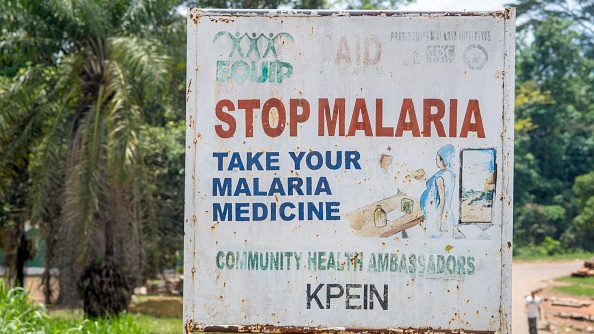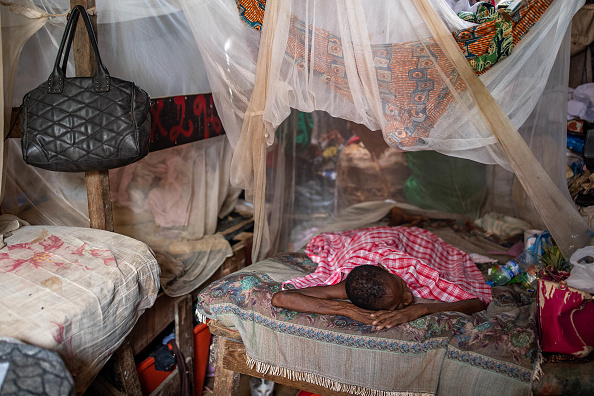
A sign reads 'Stop Malaria' in Ganta, Liberia. /Getty
A sign reads 'Stop Malaria' in Ganta, Liberia. /Getty
A growing number of countries have succeeded in drastically reducing or even eliminating malaria, but hundreds of thousands still die every year of a disease that is eminently preventable, the World Health Organization (WHO) said in a report published on Wednesday for World Malaria Day.
Eight countries that were identified in 2017 as capable of eliminating malaria succeeded in registering zero transmission cases for two years or more by the end of 2020, the report said.
This included China, as well as Algeria, Belize, Cape Verde, El Salvador, Iran, Malaysia and Paraguay.
The WHO also highlighted progress in east and southeast Asia, with cases dropping by 97 percent between 2000 and 2020 in the Greater Mekong subregion comprising China, Cambodia, Laos, Myanmar, Thailand and Vietnam.
COVID-19 threatened to derail hard-won achievements but a "worst-case scenario" that could have seen malaria deaths double in sub-Saharan Africa due to a lack of nets and antimalarial medicine was averted thanks to swift government responses to the global pandemic, the report noted.
Still, lockdowns and restricted movements caused delays in deliveries of crucial anti-malaria supplies while diagnosis and treatment services were also interrupted as staff and resources were diverted elsewhere.
One year on, one-third of countries around the world still experience disruptions in prevention and care, the WHO said.

A woman, suffering from malaria, rests on a bed inside the Povoado slum in Luanda, Angola, January 27, 2020. /Getty
A woman, suffering from malaria, rests on a bed inside the Povoado slum in Luanda, Angola, January 27, 2020. /Getty
More generally, and despite some achievements, eradicating malaria remains an uphill battle, the organization said.
"This is a disease that is preventable and treatable. And yet it kills more than 400,000 people every year," WHO Director-General Tedros Adhanom Ghebreyesus said in a video message for World Malaria Day.
While highlighting the "great strides" made in recent years in eliminating malaria, he noted that "lately, progress has plateaued" and critical targets have been missed.
"Progress has levelled off, and many countries hardest hit by the disease have been losing ground," Pedro Alonso, director of the WHO's Global Malaria Program, added.
The organization has now set its sights on 25 countries – including South Africa, Iran, Thailand, Mexico and Timor-Leste – that could achieve zero malaria by 2025.
Globally the WHO has identified 38 countries and regions as "malaria-free." China, which has reported zero malaria cases for four straight years – down from about 5,000 a decade ago – has applied to be given this status and a WHO team is expected to visit this year to assess its request.
Worst-hit Africa
In 2019, there were an estimated 229 million cases of malaria and 409,000 malaria-related deaths in 87 countries, making it the world's deadliest mosquito-borne disease, according to the WHO.
The vast majority of cases and deaths, about 94 percent, occurred in Africa, and most of these were children.
In a separate statement on Tuesday, the WHO noted that an immunization drive using the world's first malaria vaccine was showing promise in Africa, with over 650,000 children in Ghana, Kenya and Malawi already receiving protection against the disease over the past two years.
In the absence of other malaria-prevention methods, this vaccine could prove key to saving more lives and jumpstarting anti-malaria efforts, top officials said.

